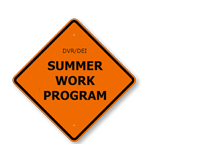Line One: Hormone replacement therapy myths, facts, and the unknown
Since the landmark women’s hormone study of 2002, even some doctors are intimidated by the prescription hormones used to balance levels and resolve these symptoms.
Line One: Thyroid nodules and cancer
Most thyroid nodules are not serious and do not cause symptoms, but a small percentage of thyroid nodules are cancerous.
Line One: When and how to seek psychiatric medication
Many people struggling with mental health issues may want to consider psychiatric medication, but don't know where to start.
Line One: Accessibility and dimensions of elderly support
Alaska’s elderly population is growing at a rapid rate while facing a range of challenges that can be distressing, and physically impairing.
Line One: State program provides work experience for Alaska youth with disabilities
The Division of Vocational Rehabilitation has a robust summer work program helping 200 disabled youths across 17 sites in Alaska. Advocates say this resource is great for youth, their parents and for Alaska employers.
Line One: Mental health resources in rural Alaska
Mental health challenges are on the rise for many Alaskans, and resources in rural Alaska remain difficult to access.
Line One: Aging in place and caregiver support
Occupational therapists can provide much needed services to allow our elders to age with dignity in their homes and provide caregiver support.
Line One: Being blind in Alaska
The Alaska Center For The Blind And Visually Impaired discusses the myths and misconceptions about blindness, what life in Alaska is like for the visually impaired and the support and resources that are available.
Line One: Pediatric chronic pain
Because chronic pain in children is a unique combination of biological, psychological and social factors in each child, the source of chronic pain can be complex.
Line One: Cults and indoctrination part 2
Most people believe they are too smart and too independently-minded to fall prey to the charms of a cultic leader or to blindly follow a belief system, yet many people do.
Line One: Vaccine access for the disabled community
More than two years into the pandemic, vaccines are widely available and most health measures have been lifted. But there are still Alaskans who have difficulty accessing vaccines or who have continued health risk in spite of them.
Line One: The Making of Monsters
David Livingstone Smith believes dehumanizing others is rooted in human psychology and leaves us vulnerable to leaders who trade in the politics of demonization and violence.
Line One: Child abuse prevention and intervention
During Child Abuse Prevention Month, Dan Bigley joins Prentiss Pemberton to discuss what is being done to prevent child abuse before it happens and what can be done to help children who have experienced abuse in their lives.
Line One: The psychology of cults
The idea of cults seems to both fascinate and scare us. Why do intelligent people often give up everything to blindly follow these leaders and their ideologies?
Line One: Depolarizing vaccine conversations
Across our community, Alaskans are trying to navigate the new realities brought about by the COVID-19 pandemic. Conversations about masking, vaccines, and whether to return to work and school can trigger strong feelings and in some cases have resulted in strained friendships and divided families. These conversations mimic the political divide and frequently devolve into defensiveness, contempt, criticism, and hurt feelings. These high conflict conversations do nothing to improve public health and are tearing at the foundations of our community and the sense of unity we take pride in as Alaskans.
Line One: Moms Matter Now supports mothers before and after pregnancy
Motherhood is an amazing and incredibly challenging time, but few people talk about the emotional and psychological transition.
Line One: The Trouble with Trauma
In order to make decisions and judgements, the human mind uses cognitive shortcuts. Dr. Michael Scheeringa, author of “The Trouble With Trauma: The Search To Discover How Beliefs Become Facts", explores why that's an issue.
Line One: The rise in fentanyl overdoses in Alaska
Overdose deaths from fentanyl are on the rise in Alaska, and its important to remember that the statistics account for more than just one person.
Line One: Health and homelessness in Anchorage and beyond
Health issues related to homelessness include frostbite, injuries from violence and mental health problems. How does sheltering and medical treatment of the homeless population impact outcomes?
Line One: Community vaccine outreach in Anchorage
Alaska’s COVID case rate appears to be improving, but omicron remains a concern for vulnerable populations in and outside of Anchorage.





















